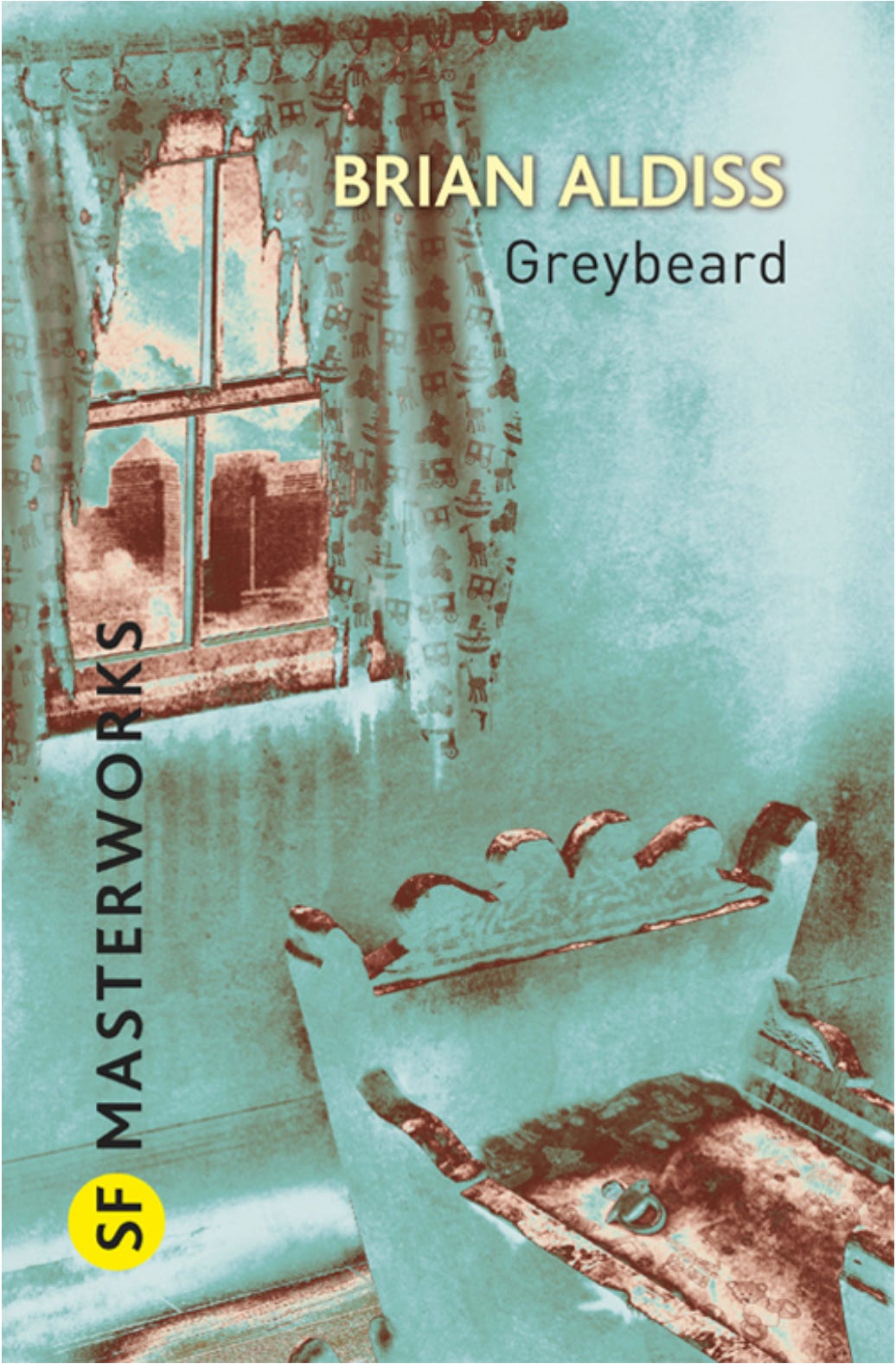Man had gone, and the great interlocking world of living species had already knitted over the space he once occupied
This 1964 post-apocalyptic novel set in the 2020s foregrounds the natural world, while following Algy and Martha Timberlane, a couple in their 50s who are among the dwindling population of England clinging on at the fringes of wilderness. In fact they’re at the younger end of the population, since the human race has been dying out without replenishing for decades.
After The Accident in 1981 — a nuclear weapons test with unintended consequences — there was uncertainty, war, civil war, revolution. In short the breakdown of order and gradual disintegration of civilisation across the world, as first international treaties and then national governments fell apart. Some of this is told in flashback as episodes from the early life of Algy (nicknamed Greybeard) who has tried to Do His Bit but ended up living in Sparcot, an isolated subsistence community, with his wife.
I read the SF Masterworks edition, which unfortunately flagged up important events in the novel in its introduction — I should take my other half’s advice and stop reading introductions. Why can’t they put the work in historical and/or career context and talk about development of themes or general tone, without saying things like (please note this is a made up example) ‘when the protagonist unexpectedly gets shot in chapter 7’? They should make it an Afterword if they’re going to give spoilers.
That aside, and allowing for the fact that it took me weeks to read, I thought it was well-written and carefully thought out in terms of the consequences of societal collapse — what would remain, what would be the first to go, how that might make people feel. The isolation and loss of foundations leads to a sort of creeping madness, alongside new myths and folktales. It’s this stifling madness that makes Algy feel like he needs to get away from Sparcot, and sparks the ‘present-day’ events of the book.
As Algy and friends travel across the South of England they encounter the incomprehensible accents of other people who’ve also been living isolated lives not that far away. Together with the loss of landmarks through destruction or decay, extensive flooding through lack of waterway maintenance, and overgrown roads and paths, it feels as though they’re travelling through a foreign country.
One note of warning: it’s not entirely without hope, but possibly not one to pick up lightly if you’re childless (as opposed to childfree), as lack of children and the feelings that lack provokes are recurrent topics.




